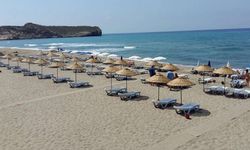With the decision taken at the 45th UNESCO World Heritage Committee meeting held in the capital of Saudi Arabia, Riyadh, Gordion will now be preserved as a world heritage site.
Thus, Türkiye has added its 20th cultural asset to the UNESCO World Heritage List.
Minister of Culture and Tourism Mehmet Nuri Ersoy shared the news on his social media accounts, saying, "We have good news! We have registered our 20th asset on the UNESCO World Heritage List. Gordion Ancient City, one of the unique cultural assets of Ankara, is now a 'World Heritage'. I thank everyone involved."
Hinting at another announcement with the words "But it's not over yet!", Minister Ersoy continued his post:
"We are expecting one more piece of good news from UNESCO. Hopefully, with the wonderful news we expect to receive from the wooden-supported mosques of Anatolia, we will further increase our count on the World Heritage List. Congratulations!"
The factor that brought Gordion to the UNESCO World Heritage List was its unique and universal values.
Settlement in Gordion, which has reached the present day from ancient times in the district of Polatlı in Ankara, still continues today in Yassıhöyük, adjacent to the ancient city, which started around 2500 BC (Early Bronze Age).
The settlement in Gordion, which lasted for 4,500 years with very few interruptions in and around the ancient city, places Gordion among the rare areas where settlement has been observed for the longest period in the world.
The numerous Tumuli in the vicinity of Gordion, the capital of the Phrygian civilization, are dated to different periods from the 9th century BC to the 3rd century BC.
While the Citadel Mound is the most important component that constitutes the Gordion Archaeological Site, the early period Phrygian Castle walls and monumental structures also stand out as unique examples in Anatolia for that period.






